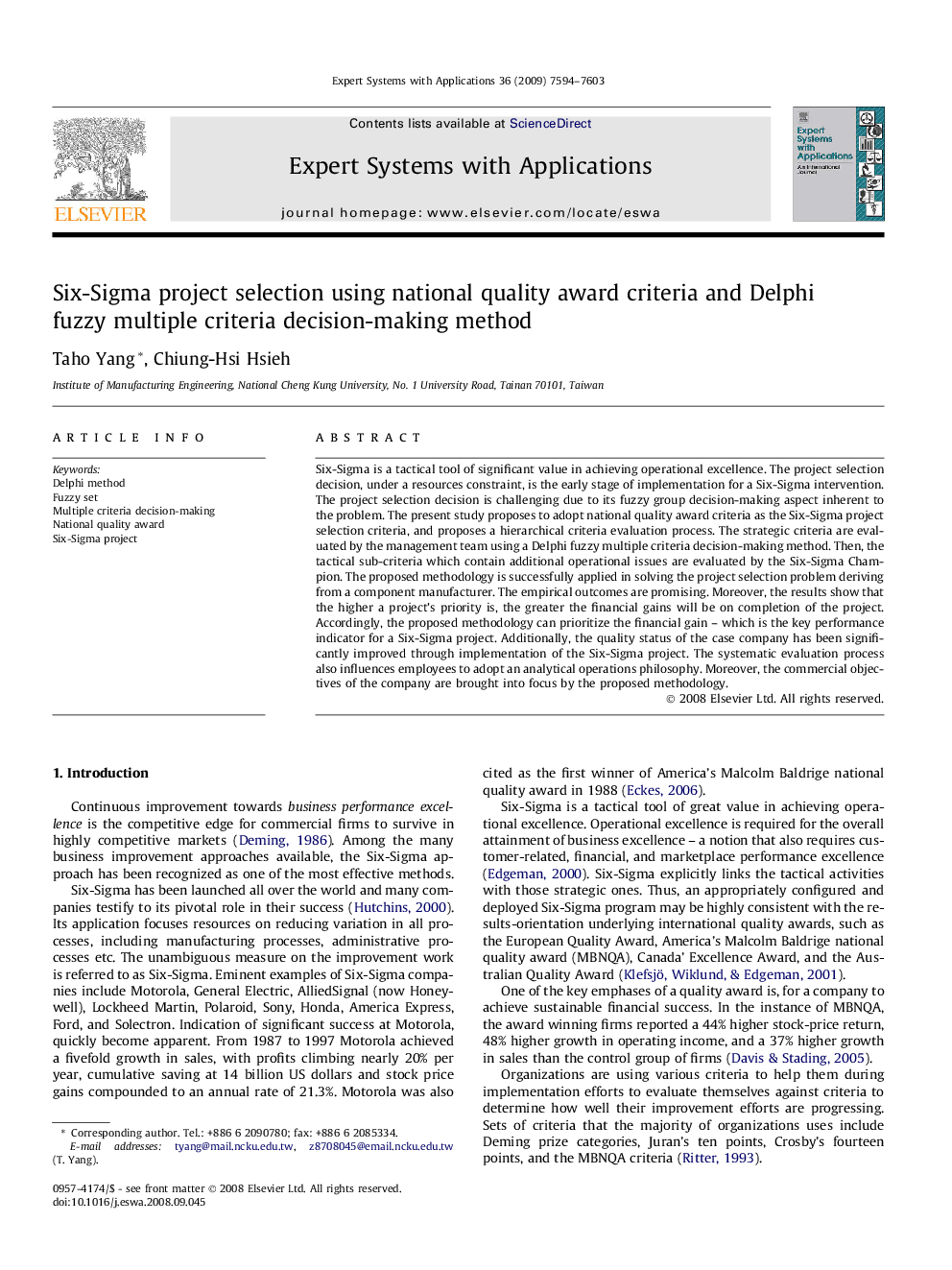| Article ID | Journal | Published Year | Pages | File Type |
|---|---|---|---|---|
| 387198 | Expert Systems with Applications | 2009 | 10 Pages |
Six-Sigma is a tactical tool of significant value in achieving operational excellence. The project selection decision, under a resources constraint, is the early stage of implementation for a Six-Sigma intervention. The project selection decision is challenging due to its fuzzy group decision-making aspect inherent to the problem. The present study proposes to adopt national quality award criteria as the Six-Sigma project selection criteria, and proposes a hierarchical criteria evaluation process. The strategic criteria are evaluated by the management team using a Delphi fuzzy multiple criteria decision-making method. Then, the tactical sub-criteria which contain additional operational issues are evaluated by the Six-Sigma Champion. The proposed methodology is successfully applied in solving the project selection problem deriving from a component manufacturer. The empirical outcomes are promising. Moreover, the results show that the higher a project’s priority is, the greater the financial gains will be on completion of the project. Accordingly, the proposed methodology can prioritize the financial gain – which is the key performance indicator for a Six-Sigma project. Additionally, the quality status of the case company has been significantly improved through implementation of the Six-Sigma project. The systematic evaluation process also influences employees to adopt an analytical operations philosophy. Moreover, the commercial objectives of the company are brought into focus by the proposed methodology.
